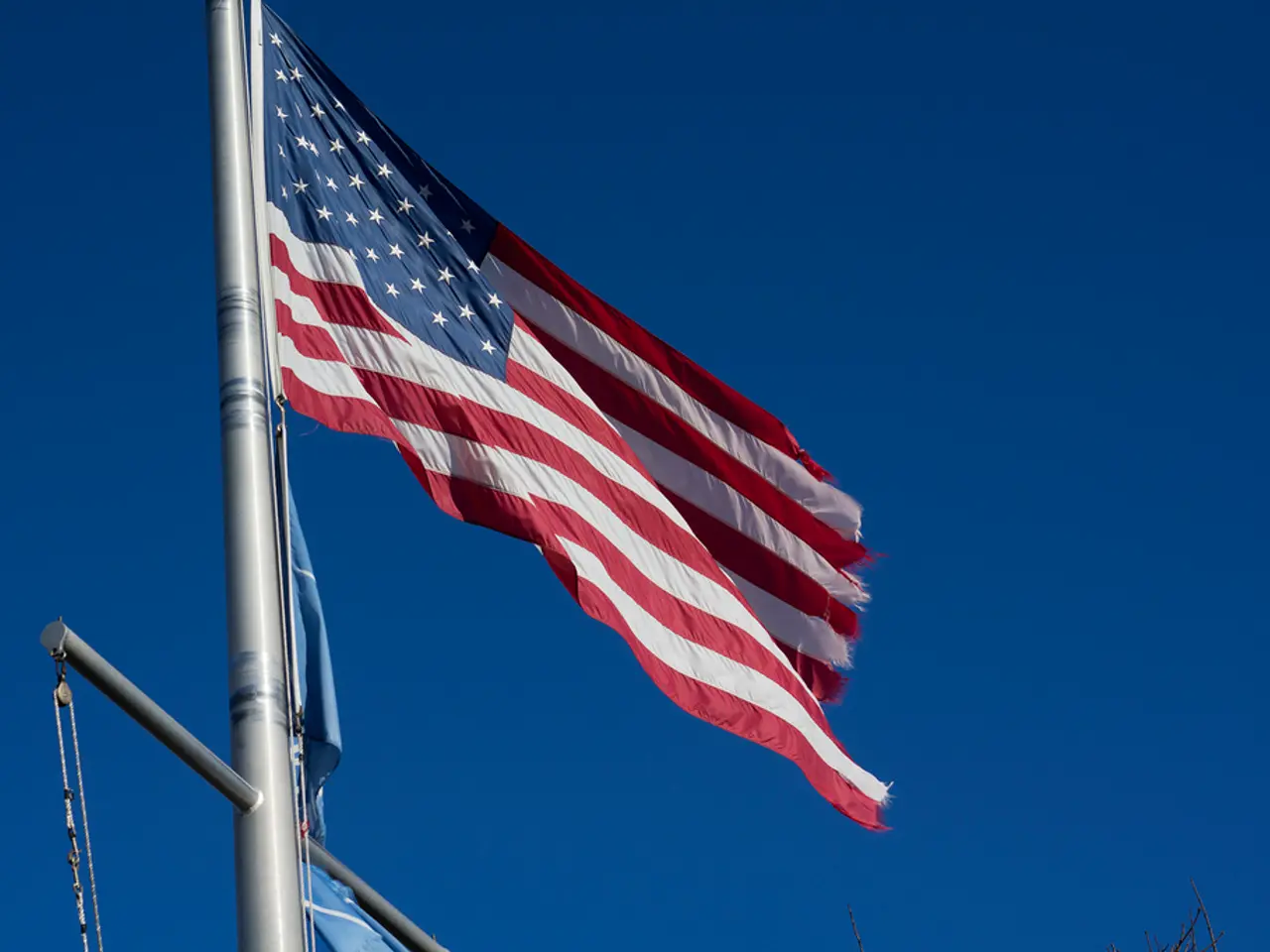In celebration of America's 250th anniversary, advocate for a constitutional amendment allowing flag burning
In a move that reflects ongoing controversies over free speech and patriotism, President Donald Trump has unveiled an executive order requiring the attorney general to prioritise the prosecution of those who burn the American flag.
The order is framed to permit prosecution only when a flag is burned in a way that is not otherwise protected speech, such as when it incites "imminent lawless action" or constitutes "fighting words." This approach is designed to avoid infringing upon the First Amendment's protection of free speech.
The President's affection for the flag is consistent with public opinion, which has long disdained expressive flag burning. Today, it is easy to find footage of flag desecration online, and patriotism runs at historic lows. According to a June 2020 poll, a plurality of Americans still say flag burning should be illegal.
This is not the first time the issue of flag desecration has been brought before Congress. An amendment giving Congress the power to prohibit the physical desecration of the flag of the United States has passed the House before, but no amendment has been ratified. In recent years, the U.S. Congress has debated several proposals for a constitutional amendment to prohibit flag desecration, but these efforts have been unsuccessful.
The Supreme Court's stance on flag desecration has evolved over time. As late as 1907, the Court upheld a flag desecration statute. However, in 1989, the Court ruled by a 5-4 margin that flag burning was protected by the First Amendment in the case of Texas v. Johnson. Gregory Lee Johnson, a member of the Revolutionary Communist Party, was arrested for burning a flag in protest and charged under Texas's flag-desecration statute.
Chief Justice William Rehnquist, in his dissent in Johnson, argued that flag burning had a tendency to incite a breach of the peace and should be considered "low-value speech." This viewpoint has been debated by legal scholars ever since. For instance, Charles Fain Lehman, a fellow at the Manhattan Institute and senior editor of City Journal, has argued that even an originalist Court might have ruled differently in the Johnson case.
Some believe that there is a simple way for Trump to square his beliefs with the Constitution: call on Congress and the states to pass an amendment banning the burning of American flags. Republicans might scare up sufficient votes from more patriotic Democrats to advance a proposal for a constitutional amendment banning flag burning to the states.
Flag burning was a popular mode of protest during the Vietnam War. While the issue has simmered down in recent decades, it continues to spark passionate debates about the balance between free speech and patriotism in America.
Read also:
- Lu Shiow-yen's Challenging Position as Chair of the Chinese Nationalist Party (KMT) Under Scrutiny in Donovan's Analysis
- Enemy Forces Have Taken Ukrainian Prisoner
- BJP Persuaded Delhi Voters That Supporting AAP Was Pointless, According to Pavan K. Varma
- Potential Democratic Contenders for Presidency in 2028 Yet to Exclude Themselves from Race








